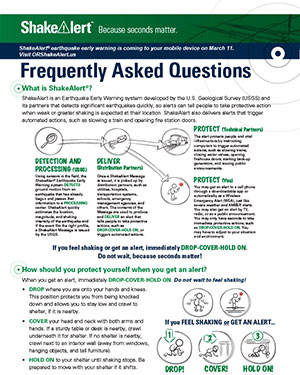Preparing for an earthquake
There are lots of steps you can take to be as prepared as possible! Here are just some of the ways you can take care of yourself and loved ones ahead of time:
1
Sign up for the Public Alerts notification system
In a disaster, Clackamas County sends out vital information through a telephone emergency notification system. The system is already programmed with our county's landline phone numbers but you must sign up manually to receive alerts via your cell phone or email. This also works with Voice Over Internet Protocol (VOIP).
More options to stay informed:
- ShakeAlert Earthquake Early Warning System
- How to get ShakeAlert on your phone
- Clackamas County’s official Facebook and Twitter feeds
- Download frequently asked questions about ShakeAlert
2
Create Your Family’s Emergency Kits
- Go Kits allow you, your family and pets to have what's needed in case you must evacuate.
- Stay Kits provide you and your family with the means to stay in your home for an extended period of time, as supplies might not be able to be delivered to your area for weeks.
- Camping Kits give you and your family direction if you need the option of camping in your backyard or elsewhere.
View a short checklist for each of these kits from PublicAlerts.org.
3
Know Your Area
There are many online tools hat can give you a quick analysis of how an earthquake will affect your immediate area. By plugging your address into the PDX Ready tool, you can see the predicted intensity in your area, the estimated recovery time for the community, and tips on how to prepare.
4
Conduct an Earthquake Home Hazard Hunt
It is essential to safely secure heavy objects inside your house so that they don't fall on anyone.
- Do you have a big-screen television? Is it strapped down?
- What about large pictures or paintings that could fall on someone’s head?
- Are your bookcases and shelving attached to the wall? What about your water heater?
5
Know Your Gas/Water Shutoff Points
In a disaster, gas leaks and water breaks are possible. Know where you can shut these off in your house or apartment if you sense a rupture. Learn more at NW Natural.
What to do during an earthquake

Indoors
Drop, Cover and Hold On. First, DROP to the ground. Then take COVER by getting under a desk or table — or if you aren't by either of those, cover yourself with your hands. HOLD ON to something sturdy.
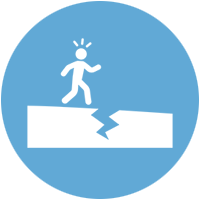
Outdoors
When the ground begins to shake, move quickly and safely into the open, away from electrical lines, trees and buildings. Drop to the ground and wait for the shaking to stop.

In Bed
If you awaken during an earthquake, stay in bed until the shaking stops and protect your head with a pillow. You place yourself in a much better position to avoid injury by doing so.

Stores
If possible, move immediately away from shelves and displays that may fall over or hold objects that could fall. Then drop, cover and hold on.

Theater/Stadium
If you're in a place with long rows, if possible get on the floor between the rows and cover your head with your arms. If not, stay in your seat and protect your head with your arms. Do not try to leave until the shaking stops.

Wheelchair
If you are in a wheelchair, stay in it. Move to cover if possible. Lock your wheels and protect your head with your arms.

Driving
Carefully bring your vehicle to a stop at the side of the road away from traffic. Do not stop on or under bridges or power lines, or near roadway signs that might fall. Once the shaking has stopped, you can continue driving, but watch for possible damage to the roadway.
What not to do during an earthquake
An earthquake is a disconcerting thing. Many individuals react without thinking and take the wrong actions. Here's a quick list of actions to avoid:
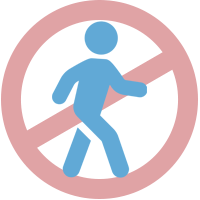
Do not run outside
The exterior walls of a building are the most dangerous place to be, due to falling windows, facades or other structural debris. Stay inside if inside, or outside away from buildings if outside.
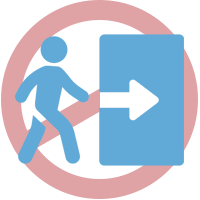
Do not go to other rooms
The shaking can be very violent, causing you to fall down and injure yourself if you try to walk or run. Drop immediately.
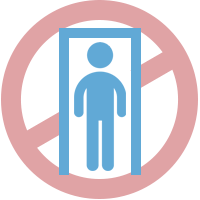
Do not stand in a doorway
It is a common misconception that standing in a doorway is the safest place to be in a house. In modern houses, doorways are no stronger than other parts of the house. It's difficult to brace yourself under a doorway, so your best option is still under a table instead.

Do not get into the "Triangle of Life"
In recent years, a popular circulated email provided an alternative to the Drop, Cover & Hold On system. This email is based on several incorrect assumptions and we strongly advise you to ignore it.
 Translate
Translate






